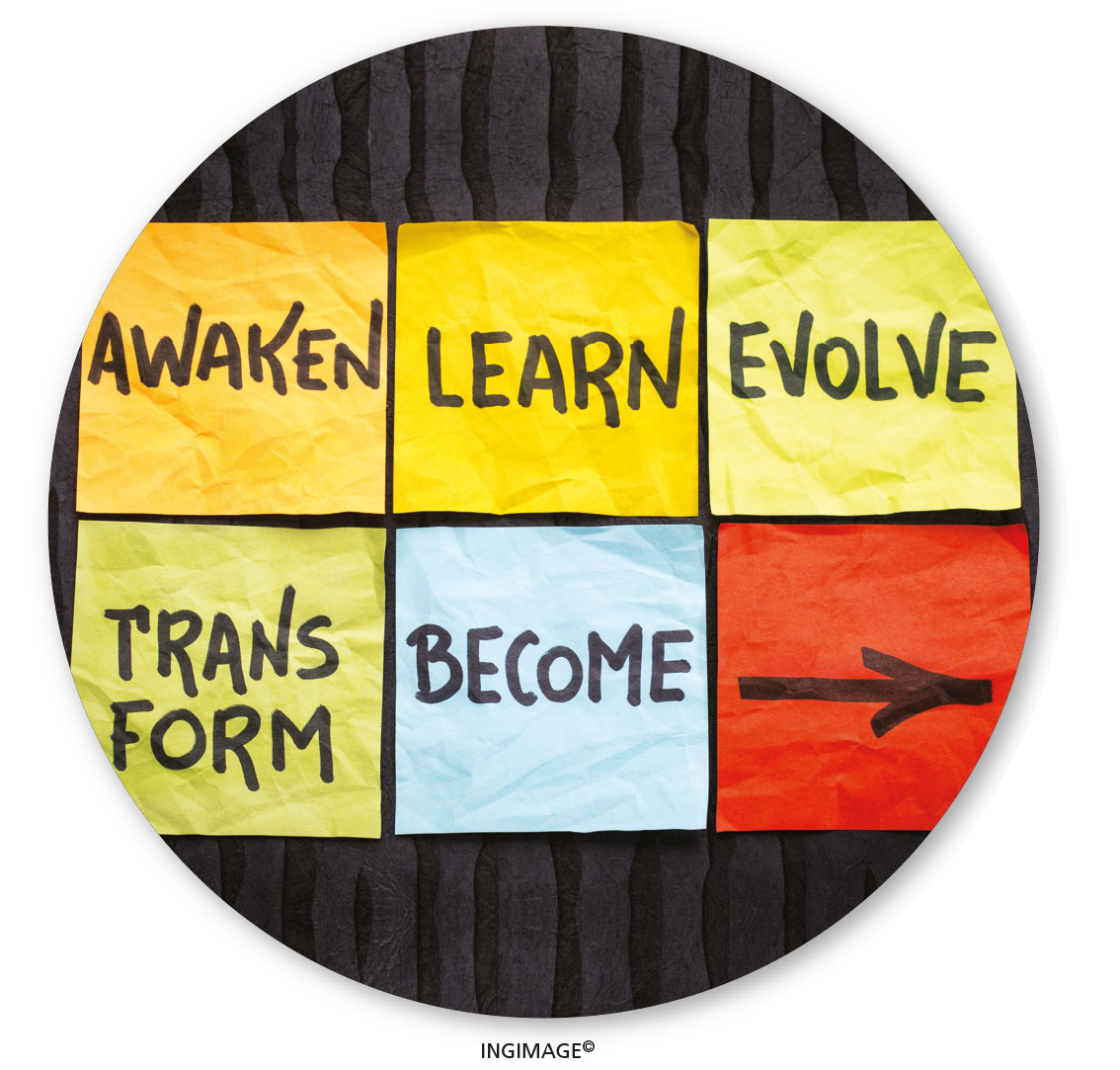CONSCIOUS LEADERSHIP
THE JOURNEY OF EVOLUTION
Archana Law illustrates the finer points of life’s development
“You cannot hope to build a better world without improving individuals. To that end, each of us must work on our own improvement,” Marie Curie declared years ago. So does the word ‘evolution’ conjure up memories of high school science classes and changes in biological populations over billions of years?
However, the core meaning of evolution is the gradual development of something growing more complex – such as having evolved from the person you were in elementary school.
This means that the capacity for self-evolution (personality, mental capacity, relationships and behaviour or action) is based on conscious intent – much like the way an artist develops, evolves and creates a painting or a composer creates music.
Today’s highly interconnected and interdependent world needs people to evolve capacities that support both personal wellbeing and service for the common good. It’s a shift that is both psychological and spiritual, which was described by the Dalai Lama as “the full blossoming of human values essential for the good of all.’’
Here are some ways that help shape and grow qualities of mind, emotion and behaviour to serve the greater good…
NEW VISION Challenging yourself to stretch to a higher level of your abilities also enhances overall wellbeing. The power of having and holding a vision of what you want in your consciousness tends to draw you to it. And the sense of accomplishment leads to a noticeably increased level of happiness with your life and resilience in the face of new challenges.
WELLBEING Studies conducted by the University of California in Berkeley found that when people consciously behave generously and compassionately to others, they become more valued and esteemed by others in return. And all this contributes to the common good.
OUTSIDE THE BOX There’s evidence that you can evolve by choosing to behave in ways that are different from or even counter to your usual or fixed personality traits and characteristics. By acting more like the person you want to be, you push yourself outside the box of your usual self and align your behaviour with the new vision.
BRAIN CIRCUITRY It’s a well-documented fact that meditation affects brain circuitry, which is related to cognitive processes and positive emotions, and is much more susceptible to change than imagined. The capacity to evolve your brain to positive emotions and thoughts is also associated with less age-related decline. According to the author of Moonwalking with Einstein Joshua Foer, anyone can learn 2,500-year-old seemingly superhuman techniques for dramatically improving memory.
SELF-MASTERY Mastering oneself shouldn’t be confused with perfection. Knowing that you are ‘perfectly imperfect’ leaves room for growth, higher consciousness and evolution. To master oneself is to journey into gaining awareness of your thoughts, emotions, reactions, likes and dislikes, subconscious programming, conscious choices and relationships. All of these are often pushed aside to attend to our daily responsibilities.
REFLECTION Make going inside your head a part of the daily routine. For many, dwelling in the deep silence and peace that exists in them is foreign territory. You can make ‘me time’ despite the daily chores and work commitments. While life brings many responsibilities, how responsible are we when we ignore ourselves?
DIVERSE ROLES Life is a multi-act play. In each succeeding scene in the play of your life, you will act in diverse roles, have different supporting cast members and take on fresh challenges. Going from one scene to the next is a transition involving loss and newness. Change and transition are always difficult, and it’s easy to become attached to a certain role you’ve played and perceive as your identity. Leonardo DiCaprio once noted: “Every next level of your life will demand a different you.”
Enjoy the journey and most importantly, find good mentors who’ve already walked the path. We’re all blind to our own self-sabotaging behaviour. Growth in all aspects of life including business comes from closing the gap between reality and what’s envisioned.
Being a conscious successful leader and entrepreneur requires a series of specific inner skills, which are not commonly taught in our education system or even through work experience.
These skills include resilience, consciously working with courage amidst fear, high emotional intelligence, boundary setting that respects all people involved, assertiveness, vulnerability, conscious decision making, authenticity, intentionally seeing each person on the team, creating environments of honesty and so on. The solution starts at the individual level.
Once you nourish and grow, you can treat others similarly. That’s the ultimate goal of conscious leadership!




